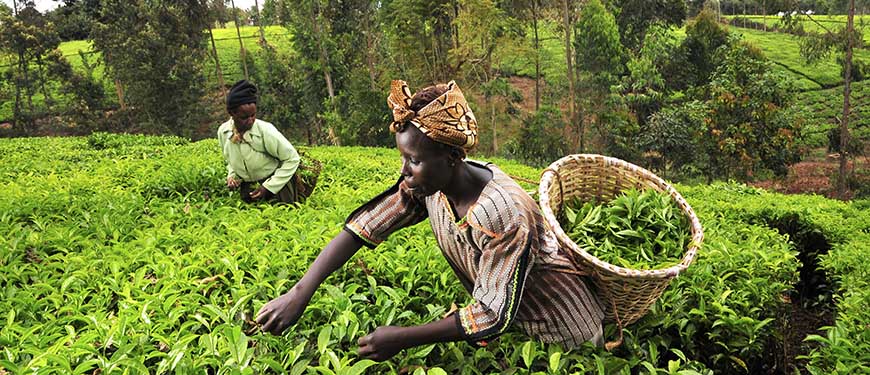Mariana Cipriano Jordão
Master Thesis - Environmental Engineering - 2020
Agriculture in Africa is essential to human welfare and economic growth, yet research has shown that its productivity is low, and the population continues to suffer from food insecurity and undernourishment. By 2050, the population is expected to double in the continent, creating uncertainty regarding the future of the agricultural sector. Agriculture plays a major role in environmental issues and between 2005 and 2017, it contributed to one-quarter of the global emissions. The purpose of this project was to address the existing agricultural system in 2013 and how it was supporting the African population, which changes to it could sustain population growth and which environmental impacts it would cause, by performing a ‘cradle-to-gate’ Life Cycle Assessment.
The African diet revealed that the continent was not providing enough food to feed its population, while the analysis of yields and pesticide and fertiliser use showed low agricultural productivity. In addition, to sustain its population growth by 2050, the environmental impacts of the current system would increase 2 to 3 times. The impact assessment of prospective models, based on potential farming technique transitions and nutritional changes by 2050, showed a better environmental performance concerning the vegetarianism model, whereas the environmental impact of the healthy diet model far exceeded that of the existing system. Furthermore, organic and intensive farming had similar overall impacts, yet intensive farming provided higher yields.
To improve food availability in Africa and reduce food insecurity and undernourishment while preventing significant impacts on the environment, the continent should focus on: (1) implementing an intensive farming system, (2) decreasing animal production through a vegetarian diet, and (3) reducing other factors affecting the food demand (fertility rates) or the agricultural system (losses due to lack of distribution, storage, and refrigeration infrastructures).
